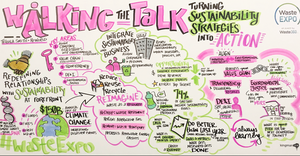Non-Profit Proposes Three Ways Toronto Can Become a 'Zero-Waste' City
February 26, 2016
Toronto Metro
The city’s landfill will be completely full by 2029 if garbage diversion rates don’t improve. So says a new report from the Toronto Environmental Alliance that outlines a three-step plan towards creating a “zero waste” city.
1. More recycling: 20 per cent of a typical residential garbage bag is filled with recyclable materials, and many buildings and businesses do little to no recycling, the report says. Providing equal access to, and encouraging more use of, blue bin recycling is key.
2. Organic waste: An average Canadian household spends $28 each week on food that’s not eaten and thrown in the garbage. The report recommends reducing food waste by donating it to community programs, increasing access to green bins and using compost to enrich soil on farms.
3. Reusing “leftovers:” Items such as broken toys, unused construction materials and discarded clothing or furniture shouldn’t end up in garbage bins. Cities like Vancouver and San Francisco have found ways to recycle the items. Vancouver, for example, reuses pieces of demolished homes on new builds.
You May Also Like


